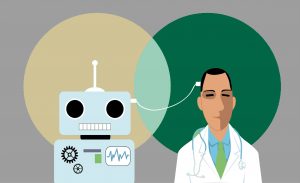Forgetting to take a medication can have severe consequences for a patient. Digital pills, medications that contain a sensor which allows physicians and patients (and possibly others) to track usage, addresses this issue.
It also raises serious concerns and opinions are divided on whether the future of this innovative technology is good or bad for the patient.
Proponents believe digital pills will revolutionize health care, ensuring patients take necessary medications in the correct dosage at the right time, prevent overuse of opioids and bring about a bright new age of positive patient outcomes.
Opponents believe digital pills will revolutionize health care, endangering patients by making their private health information vulnerable to hackers or unscrupulous data collectors, bringing about a horrifying new age of Big Brother-style patient tracking.
Noncompliance Consequences
The pills’ supporters point out that 50% of patients don’t take medications as prescribed. Since a medication’s effectiveness depends on it being taken as prescribed, the lack of adherence to this schedule can have serious health implications for patients.
It’s estimated that noncompliance with prescription instructions costs about $100 billion annually, in large part because patients get sicker and need extra treatment or hospitalization.
While noncompliance sometimes can be attributed to patients not understanding the directions or not liking the side effects, in many cases it’s simply that patients forget. With the number of medications being prescribed today, it’s easy to see how patients can struggle to keep the schedules straight.
A digital pill can send confirmation that it’s been ingested to a smartphone or other computer device via a wearable chip, eliminating reliance on faulty memory.
Fighting Opioid Use
The pills have been touted as a tool in the battle against opioid addiction. Prescribing physicians would be able to monitor use and, if necessary, intervene if a patient’s dosages begin to escalate.
The Food and Drug Administration in November OK’d the first use of this technology in a prescribed medication. Interestingly, or ironically, that medication was Abilify (generic name: Aripiprazole), an antipsychotic often prescribed to patients with schizophrenia or bipolar disorder.
The irony is that patients with schizophrenia “experience paranoia and delusions that they are being watched,” according to an article from NPR, something a pill that allows the user to be tracked would seem to have the potential of exacerbating.
Dr. Arthur Caplan, founding head of the Division of Bioethics at New York University Langone Medical Center, raised concerns in 2015, when the FDA began reviewing the digital pill.
“How secure is the technology? Are hackers going to threaten to expose your medical secrets online if you don’t pay?” Caplan wrote in an article on NBCNews.com. “Will children or incompetent people be forced to use tracking pills with no consent, or will a judge have to authorize their use?”
For all its positives, the digital pill also brings with it a host of ethical concerns that need to be addressed before its use becomes widespread.



